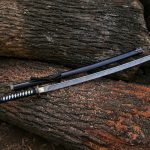In recent years, the conscientious consumer has been on the rise, demanding products that not only meet their needs but also align with their eco-friendly values. Leather products, once perceived as environmentally detrimental, have undergone a significant transformation, emerging as a sustainable choice for those who wish to make ethical and responsible choices without compromising on style, quality, or durability. This article delves into the world of leather products, their eco-friendly attributes, and why they have become the go-to choice for eco-conscious consumers.
The Evolution of Leather Production
Leather, in its most basic form, is a byproduct of the meat industry. Traditionally, leather production involved harsh chemicals and practices that were not environmentally friendly. However, the leather industry has come a long way in recent years, and it is important to understand the sustainable strides it has made.
Tanning Processes
Modern leather production has transitioned towards more environmentally friendly tanning processes. The use of toxic chemicals like chromium is gradually being phased out in favor of eco-friendly alternatives. Vegetable-tanning and chrome-free tanning are two such methods that prioritize minimizing environmental impact. These processes not only produce high-quality leather but also reduce the carbon footprint associated with leather production.
Durability: A Sustainable Aspect of Leather
One of the primary reasons eco-conscious consumers are turning to leather products is their exceptional durability. Unlike synthetic materials that wear out quickly, genuine leather items can withstand the test of time. This durability not only reduces the frequency of replacements but also lessens the environmental impact, as fewer resources are required for the production of new items.
Biodegradability
Leather is a natural material, and this inherent quality makes it biodegradable. When leather products reach the end of their life cycle, they decompose naturally, returning to the Earth without leaving behind harmful synthetic materials that can take centuries to break down. This aligns perfectly with the principles of eco-conscious consumers who prioritize sustainability.
Ethical Farming and Animal Welfare
Many leather manufacturers today source their hides from farms that adhere to ethical and humane animal welfare standards. Ethical farming practices ensure that animals are treated with care and respect, which is a vital concern for those who wish to make compassionate choices. The move towards responsible animal farming and leather production has contributed significantly to the sustainability of leather products.
Vintage and Second-Hand Leather
Another sustainable trend in leather consumption is the purchase of vintage and second-hand leather items. By reusing and recycling leather products, consumers not only reduce waste but also contribute to the longevity of these products, giving them a new lease on life. This approach minimizes the demand for new leather production, which is undoubtedly an eco-conscious choice.
Sustainable Leather Alternatives
In addition to traditional leather, sustainable alternatives have emerged, further catering to the eco-conscious consumer. Cork leather, mushroom leather, and even pineapple leather (Piñatex) have become popular choices. These innovative materials offer the look and feel of leather while being entirely plant-based and sustainable.
Leather Care and Longevity
Taking care of your leather products is an essential aspect of their sustainability. Proper maintenance can extend the life of your leather items, reducing the need for replacements. Simple practices like regular cleaning, conditioning, and protecting your leather goods from extreme conditions can go a long way in making them last for generations.
Eco-Friendly Leather Brands
To meet the growing demand for eco-conscious leather products, many brands now focus on sustainable and ethical production. These brands not only use eco-friendly tanning processes but also prioritize recycled and locally sourced materials. Supporting such brands is an excellent way to contribute to sustainability while enjoying the benefits of high-quality leather products.
Conclusion
Leather products have come a long way from their environmentally detrimental past. Today, they offer eco-conscious consumers a range of sustainable options, from eco-friendly tanning processes to biodegradability and ethical animal farming. Moreover, the durability of leather ensures that these products last, reducing the need for replacements and, in turn, minimizing the environmental footprint. Whether you prefer traditional leather or innovative alternatives, the world of leather is now a sustainable choice that aligns perfectly with eco-conscious values.





